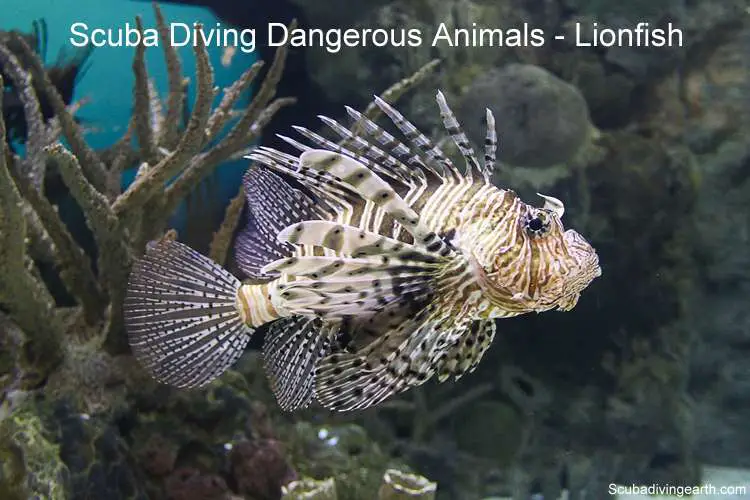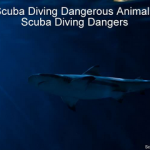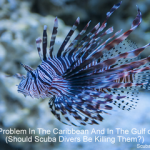
Sharm El Sheikh, located on the southern tip of the Sinai Peninsula in Egypt, is known for its clear waters and diverse marine life. While most of the fish in the area are harmless, there are a few species that can be dangerous to humans.
Here are some of the potentially dangerous fish you may encounter in Sharm El Sheikh:
- Lionfish – These fish have venomous spines on their dorsal fins that can cause pain, swelling, and even paralysis. If you see a lionfish, keep a safe distance and do not touch it.
- Stonefish – These fish are masters of camouflage, blending in with their surroundings to avoid detection. Their venomous spines can cause severe pain, swelling, and even death in some cases. Avoid stepping on or touching any suspicious-looking rocks.
- Barracuda – These fish are known for their sharp teeth and aggressive behavior. While barracudas are not typically aggressive towards humans, it is best to give them a wide berth.
- Moray eel – These eels have sharp teeth and a powerful bite. While they are not typically aggressive towards humans, it is best to keep a safe distance and avoid provoking them.
It is important to note that while these fish can be dangerous, they are generally not a threat if left alone. If you plan on snorkeling or diving in Sharm El Sheikh, it is best to go with a reputable tour operator who can guide you to safe and enjoyable spots.
Most dangerous fish in Sharm El Sheikh
The most dangerous fish in Sharm El Sheikh is the Red Sea’s Poisonous Pufferfish, also known as the blue-spotted pufferfish or the black-spotted pufferfish. These fish contain a potent neurotoxin called tetrodotoxin that is deadly to humans if ingested. The toxin is found in the fish’s internal organs, skin, and ovaries, and can cause paralysis and respiratory failure within a few hours of ingestion.
It is important to note that encounters with the poisonous pufferfish are rare, as they are not aggressive and generally avoid humans.
However, if you do happen to come across one while diving or snorkeling, it is important to keep your distance and not touch or approach it. If you accidentally ingest any part of the pufferfish, seek medical attention immediately. The best way to avoid encounters with the poisonous pufferfish is to follow safe diving and snorkeling practices, and always go with a reputable tour operator who can guide you to safe and enjoyable spots.
Are there stonefish in Sharm el Sheikh?
There are stonefish in Sharm El Sheikh. Stonefish are a type of venomous fish that are commonly found in the waters of the Red Sea, including around Sharm El Sheikh. They are often found in shallow waters near coral reefs or rocky areas, where they blend in with their surroundings and are difficult to spot.
Stonefish are considered one of the most venomous fish in the world, and their venom can cause severe pain, swelling, and even death in some cases. It is important to exercise caution when swimming or diving in areas where stonefish may be present. If you see a suspicious-looking rock or reef, avoid stepping on it or touching it. Additionally, if you are stung by a stonefish, seek medical attention immediately.
To reduce the risk of encountering stonefish, it is recommended to wear protective footwear when walking on the beach or in shallow waters, and to avoid touching or disturbing any marine life. It is also advisable to go with a reputable tour operator who can guide you to safe and enjoyable spots for diving and snorkeling.
Is it safe to swim in Sharm El-Sheikh?
It is generally safe to swim in Sharm El-Sheikh. The Red Sea waters around Sharm El-Sheikh are warm, clear, and inviting, and the beaches and resorts in the area are well-maintained and monitored for safety. However, as with any coastal destination, there are some potential hazards to be aware of when swimming in Sharm El-Sheikh.
One of the primary concerns is the risk of coral cuts and scrapes. The waters around Sharm El-Sheikh are home to beautiful coral reefs, but the sharp edges of the coral can cause painful cuts and abrasions if you accidentally come into contact with them. To avoid this, it is recommended to wear a wetsuit or protective swimwear, and to avoid touching or standing on the coral.
Another potential hazard is the presence of jellyfish and other marine creatures that can cause stings or bites. While these incidents are relatively rare, it is important to keep an eye out for any warning signs posted on the beaches, and to avoid swimming in areas where jellyfish are known to be present.
Finally, it is important to exercise caution when swimming or snorkeling in deeper waters, as there may be strong currents or undertows that can be dangerous. It is recommended to swim with a buddy, to stay within designated swimming areas, and to always follow the instructions of lifeguards and other safety personnel.
Overall, by following common sense safety precautions, it is generally safe to swim in Sharm El-Sheikh and enjoy the beautiful Red Sea waters.
I hope you enjoyed this article about dangerous fish in Sharm El Sheikh
I’d love to hear from you. Tell us about your adventures of diving and snorkelling. Please use the comments section below. Please also share your photos. Either from your underwater cameras or videos from your waterproof go-pro’s!
If this article hasn’t answered all of your questions. If you have more questions either about snorkelling or scuba diving (or specifically about dangerous fish in Sharm El Sheikh), please comment below with your questions.
There will also be many more articles about scuba and scuba diving safety tips (and on snorkelling too) for you to read and learn about this fabulous sport.
Have fun and be safe!





